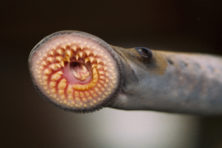More Monitoring of Great Lakes Fish
- Share
- Tweet
- Pin
- Share
The U.S Environmental Protection Agency recently announced that Clarkson University in Potsdam, New York, has received a $6.5 million Great Lakes Restoration Initiative grant to monitor pollutants in Great Lakes fish for the next five years. This EPA grant continues funding for the university’s surveillance program to monitor Great Lakes fish for contamination from legacy pollutants such as PCBs, banned pesticides, mercury and from emerging chemicals of concern like flame retardants and personal care products. “This new Great Lakes Restoration Initiative funding will be used to expand efforts to track the levels of pollutants in fish at 10 sites throughout the Great Lakes basin,” said Region 5 Administrator/Great Lakes National Program Manager Susan Hedman. “The data gathered through this study will help to identify contaminants that pose risks to wildlife and human health.”
In collaboration with other state and federal programs, Clarkson University will use EPA’s grant to develop state-of-the-art capability to identify and quantify pollutants in fish. The university will also expand the list of target chemicals to assess contaminant transfer through the food chain. This work will result in a clearer picture of the impact of human activity on the health of the Great Lakes ecosystem.
“This investment will help provide the necessary resources to monitor pollutants in and around our lakes,” said U.S. Sen. Kristen Gillibrand, a member of the Senate Environment & Public Works Committee. “The Great Lakes Restoration Initiative will help update Clarkson University’s research programs to monitor the presence of pollutants, stepping up our efforts to protect the air we breathe, the water we drink and the land we use around us.”
For more information, visit glri.us or epa.gov/greatlakes/glri.

